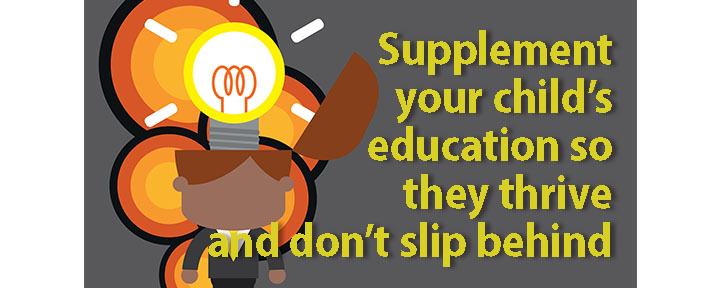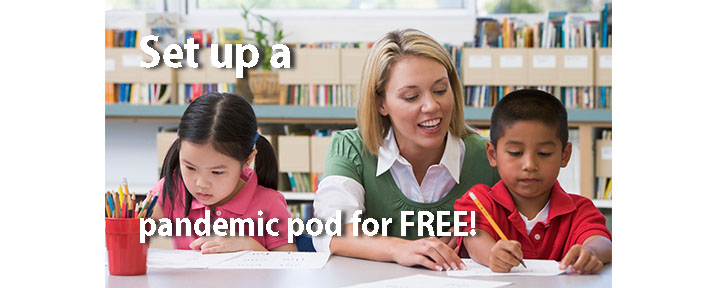 I remember worrying about the public and private schools in my neighborhood when I was pregnant with Nicole, my first child. I visited many classes to find the “perfect” school for her – and didn’t find one school that provided the academic rigor, depth in critical thinking and problem solving, the arts and theater, and the physical activities (dance, sports) that I was looking for. I didn’t bash schools for not offering what I wanted for my daughter; instead, I supplemented both of my daughters’ education so they would love to learn and get all of the important experiences to keep them engaged.
I remember worrying about the public and private schools in my neighborhood when I was pregnant with Nicole, my first child. I visited many classes to find the “perfect” school for her – and didn’t find one school that provided the academic rigor, depth in critical thinking and problem solving, the arts and theater, and the physical activities (dance, sports) that I was looking for. I didn’t bash schools for not offering what I wanted for my daughter; instead, I supplemented both of my daughters’ education so they would love to learn and get all of the important experiences to keep them engaged.
That’s exactly what parents will need to do during this pandemic, and most likely after this pandemic has passed. Yes, things are different now. Whether your school is 100% online, hybrid, or on campus, you can supplement your child’s education so they thrive. Use this time to experiment and try new approaches.
You can tell if your child is engaged in classes and work (asynchronous or synchronous). This is where you can fill the void by giving them interesting assignments or even inviting a mentor or teacher to work with them in virtual sessions. Here are some activities that I’ve set up for families during this pandemic:
1. Bamboo vs Oak Tree Experiment (to find faster, efficient ways to produce oxygen in the atmosphere)
2. Reading Challenge (to increase their reading fluency and comprehension)
3. Math Challenge (to build a solid math foundation so they’re prepared to move on to the next level)
4. Gardening Experiment (to determine which organic pesticides work best)
5. Research Writing (to teach them how to write a comprehensive research paper – something they probably will never learn in school)
6. Create a Podcast (to find their voices – and do research – and share their opinions)
7. Start a business (to learn about marketing, accounting, ecommerce)
If you find that your child is not thriving in whatever mode of learning they are engaged in, you can hire teachers to teach their classes one-on-one. Some states require that students be enrolled in a public or private school, so check with your state. It’s actually easier to open a private school for just your children (in most states) than to jump through hoops with homeschooling or independent studies programs.
You can also start a pandemic pod, see my blog: How to Form a Pandemic Pod for Free that can be free to the hosting family. In this setup, the hosting family hires the teacher, sets the curriculum and invites 2-3 other families to join. The other families’ tuition covers all costs so the pandemic pod is free to the hosting family. I’ve even written curriculum for preschool through high school.
While this is a stressful time as you make difficult decisions about whether to send your child back to school (if they’re opening) or worry that your child is slipping behind academically (for online classes), know that you have many options. Sometimes chaos gives us the unique opportunity to reinvent ourselves, and in the case of our children’s education, we can create something really stimulating and challenging for them. For me, I started Merit Academy with the projectMERIT theme. And yes, it was created when I realized that the existing academic options just weren’t good enough.

